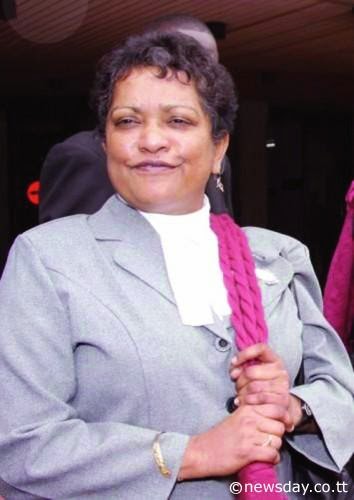 |
| Theophilus Albert Marryshow |
Theophilus Albert Marryshow, CBE
Albert Marryshow was one of the key figures in the political history of Grenada and the West Indies Federation, in earlier years a radical reformer who ended his days well respected by all segments of the society, including the Establishment.
Early life and education
He was born on 7 November 1887 and registered as Theophilos Maricheau, son of P.I. Maricheau, a small planter, and Eugenia de Souze. His mother died in 1890, and the boy was brought up by his godmother, Christine, housekeeper and later wife of Antonio Franco, a Portuguese merchant. After a brief apprenticeship to a carpenter, in 1903, Franco obtained a job for the young Maricheau in the printing establishment of W.G. Donovan, initially to deliver newspapers. Donovan produced notably radical newspapers, advocating representative government and a Federation of Britain's West Indian colonies. Marryshow (he adopted an Anglicized spelling of his surname) demonstrated literary abilities that were soon recognised by Donovan who became his mentor. "Teddy" Marryshow was soon involved in the whole range of journalistic activity, as well as becoming an active participant in local politics and in the Grenada Literary and Debating Society.
Career
By the time of Franco's death in 1916, Marryshow had himself acquired a paper of his own, The West Indian, whose name signalled the continuation of Donovan's political goals. The first number (1 January 1915) promised "an immediate and accurate chronicler of current events, an untrammelled advocate of popular rights, unhampered by chains of party prejudice, an unswerving educator of the people in their duties as subjects of the state and citizens of the world" and hoped for "the day when, our islands linked together in an administrative and fiscal union, the West Indian Dominion will take its place, small though that may be, in the glorious Empire." This, and the replacement of Crown Colony Government by representative democracy in each of the territories that it entails, remained his steady goals in years of continual journalistic and political struggle in Grenada (under the slogan "Educate, Agitate, Federate") and as a participant in wider movements for black empowerment.
Among Marryshow's early political successes in Grenada were the setting up of the Representative Government Association in 1918 which led in 1920 to some changes in the way members of the Legislative Council were chosen, and in 1922 to a visit by a special Commission which recommended an increase in the number of elected members. Marryshow himself was elected representative for St George's for most of his life.
He participated in various activities designed to promote Federation, including the one and only meeting of the Standing Conference in 1929 in Barbados. Around this time, the Colonial Office looked favourably on a proposal to bring about limited union of the Leeward and Windward Islands, but Grenada refused to attend the 1934 conference that approved this notion so that wider political federation was temporarily deadlocked. But progress was being made on moving toward more representative government within the colonies. Marryshow visited London to lobby the Colonial Office in 1931. A new constitution for Grenada was approved in 1935, adding two more elected representatives to the Legislative Council. In 1937, Marryshow helped organise a non-violent demonstration to express solidarity with striking workers in other West Indian islands, the disturbances that led to the Moyne Commission in 1938.
Ill-health had been among the reasons Marryshow sold his newspaper in 1934. His financial status was also precarious and remained so during and after the war years. But politically these were times when he was looked on as a trustworthy leader of the colonies towards and into federation. Towards the end of his career, the old regime in Grenada was challenged by the populist labour politics of Eric Gairy. In the first election under full adult suffrage in 1951, Marryshow retained his seat, but Gairy's party took all but one more of the eight available. Marryshow continued to play a role in the developments that led eventually to Federation, signed into law in 1956, and he was nominated to represent Grenada in the Upper House of the Federal Parliament. He was only able to serve a few months, dying on 19 October 1958.
Honours and awards
Marryshow was made a Commander of the Order of the British Empire in 1943, for his services to the West Indies, and one year later he was appointed to the elitist Executive Council of Grenada.
Personal life
Besides his arduous public roles, Marryshow lived life to the full: a lover of roses, women and song. He never married but left several children including six with Edna Gittens. His house on H.A. Blaize Street in St George's is a tasteful expression of the best in West Indian vernacular architecture of that period. It remains in excellent condition, and houses the University of the West Indies Grenada Centre.
Death and legacy
Marryshow died on 6 October 1958, aged 70.
The Grenada state-owned tertiary institutions, T.A Marryshow Community College, is named after him.
In November 2010, the Government of Grenada has named 7 November, the birth-date of Theophilus Albert Marryshow as Marryshow Day, in recognition of his contribution to Grenada and the region.
Caribbean Elections Profile
|




Comments